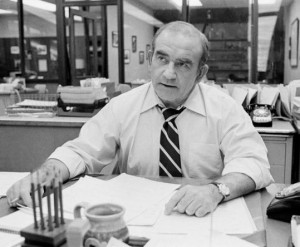When you’re having trouble finding the linchpin source for a story, who do you turn to for advice?
When you’re thick into writing and need help deciding whether to trim or enhance a certain part of the narrative, who do you ask?
When a critical source agrees to an interview, but only if it’s off the record, who do you consult to see if it’s OK?
Chances are the answer to all these is the same: your editor.
But here’s something that most editors won’t tell you: they don’t know everything.
They may have dealt with a particular situation before. In other cases, it might be something they’ve never encountered. If that’s the case, whatever advice they’re giving you they’re probably making up as they go along.
That’s probably not what you wanted to hear. As writers, we want to know that our editors have all the answers. We want them to make the right decision 100 percent of the time, and as a result, make our reporting and writing better too.
But that’s just not the case. Editors, though they hold more power than writers in the general editorial scheme of things, are not infallible – though some I’ve known liked to think they were.
More likely than not, if you bring a problem to an editor they’ll come up with a solution based on:
- The publication’s editorial policies
- Personal experience
- The experiences of other writers at that publication or at others they’ve worked for
- Consensus opinion from publication’s other editors
- What their editor friends and acquaintances have done
- Advice from a professional association
- Advice of publication’s legal counsel
- All of the above
Even then they could get it wrong. They may tell you to zig when, after all is said and done, you realize you should have zagged.
So the next time you have a question about a story, don’t ask yourself, “What would my editor say?” Instead ask, “What would I do about this if I were in my editor’s shoes?” If you’ve worked for a particular publication for any length of time or have a good working relationship with a given editor, chances are good you know the answer without having to ask the question.
I’m not advocating that writers not check in with editors when they run into trouble. On the contrary, I’m a huge fan of communicating with editors early and often.
But instead of framing a query as “I need help!” frame it as “Here’s what’s happening and here’s what I think I should do.” Editors will appreciate the fact that you’ve thought about the situation and come up with some solutions.
Not only will it endear you to your editor, working in that kind of problem-solving mode will serve you well if you ever end up working as an editor.
